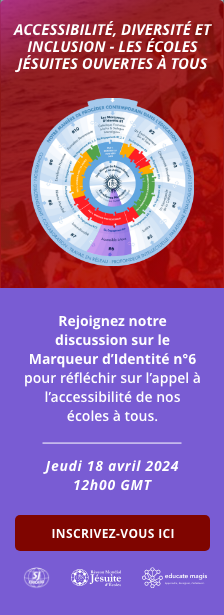As we recognize that chronic issues often impact BIPOC members of the global community, we are once more sadly reminded that migration, regardless of ethnicity, is impacted by war from conflicts in Syria, Afghanistan, Yemen, Ethiopia, and now in Ukraine.
In our senior elective class, Global Perspectives, and our Christian Service classes, at Loyola School in New York, US, we have been learning about the stories of migrants from around the world, addressing several factors of migration as well as those most often affected by chronic conditions. We see how human migration results from conditions that impact the entire world including an understanding of how rising water levels impact impoverished communities in Bangladesh to the Root Causes Initiative and the push/pull conditions in Central America to the faces of DACA to the ecological concerns around building a wall along the Rio Grande through the cinematic documentary “The River and the Wall.”
We also watch “El Comedor,” directed by Paul Durrant, an alumnus of St. Joseph’s Prep. The short documentary details the kitchen operations of the Kino Border Initiative (KBI) operating through both Nogales, Arizona, as well as Nogales, Mexico, to feed migrants recently deported from the United States. However, recent changes in U.S. immigration policies have altered KBI’s mission to now provide food, clothing and health care for migrants arriving from the south rather than migrants being deported from the U.S. Our students learn about one such policy that was revived from the 1940s. Title 42 has largely closed the border even to asylum seekers during the pandemic, and our students are given the opportunity to learn about those changes and join a Jesuit petition to reopen the border to migrants. We follow this up with a trip for 18 students to the borderlands in conjunction with Borderlinks and No More Deaths to learn firsthand about impacts of migration through the Sonoran Desert on both the Arizona and Mexico side of the border as well as the Indigenous Tohono O’odham people in the region.
We recognize March as Women’s History Month with St. Frances Xavier Cabrini as the first U.S. born female canonized as patron saint of immigrants, as well as the upcoming feast of St. Joseph, the patron saint of migrants. We pray for those migrants in all locations of every cause. For a compilation of prayers for migrants, we have used Education for Justice for many resources.
For more information, contact Harry Egner or Noelle Morano, or leave a message in the comment box below.
This article was originally shared in JSN Hemispheres March 2022
Se connecter ou Adhérer
pour créer et afficher des commentaires

